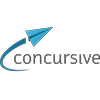Ethics of using "Open Source"
Posted by Michael Harvey on June 26, 2007, 10:20 PM EDT

As background, I'm the CEO of Centric CRM, one of the vendors of open source software that has been at the fulcrum of a heated discussion centered around which vendors can rightly use the term "open source" when describing their products. While I normally stay out of such verbal jousts, I decided I ought to share our view point if only given the tone of some of the recent postings. Specifically, to address the sentiment of some that vendors using the term “open source”, whose offerings differ from the strict OSI definition, are either disingenuous at best, dishonest at worst.
Let me begin by saying we are supporters in many respects, though not all, of the OSI and we spend considerable time and effort in groups like the Open Solutions Alliance  (OSA) actively supporting concepts almost inherent in the notion of “open” technologies. And with respect to the OSI specifically, as Matt Asay
(OSA) actively supporting concepts almost inherent in the notion of “open” technologies. And with respect to the OSI specifically, as Matt Asay recently shared in his blog we are about to release a sizable piece of code named Team Elements under the OSL, an OSI-endorsed license authored by Larry Rosen, whom I believe was the original counsel for the OSI. The reason for our use, in this case, of an OSI license couldn't be simpler. The OSL is a good license for our customers and, we believe, a smart business decision for ourselves. That's it. Neither religion nor dogma is driving us in this regard – though admittedly we do feel a sense of satisfaction that in this case the license and our business model align with the OSI definition. However, if the only reason we chose the OSL was to comply with the OSI we'd be standing on shaky ground, especially with our shareholders. And because one is my wife and another Intel Capital – one of which is volatile, though I'll not say which – business considerations must trump dogma.
recently shared in his blog we are about to release a sizable piece of code named Team Elements under the OSL, an OSI-endorsed license authored by Larry Rosen, whom I believe was the original counsel for the OSI. The reason for our use, in this case, of an OSI license couldn't be simpler. The OSL is a good license for our customers and, we believe, a smart business decision for ourselves. That's it. Neither religion nor dogma is driving us in this regard – though admittedly we do feel a sense of satisfaction that in this case the license and our business model align with the OSI definition. However, if the only reason we chose the OSL was to comply with the OSI we'd be standing on shaky ground, especially with our shareholders. And because one is my wife and another Intel Capital – one of which is volatile, though I'll not say which – business considerations must trump dogma.
For identical reasoning to the above, we will continue releasing our CRM product under our own, open source license. This one, the CPL (Centric Public License) is not one endorsed by the OSI. And at least in the near term (as also pointed out in Matt's blog) we will continue to license it so. Rightly or wrongly, we evaluate licenses by their ability to help us support our customers, and by extension, our other stakeholders. While the latter might sound somewhat self serving (it is) it's also important to our Job 1 – satisfied customers; they demand we remain commercially viable. Ending up on the scrap heap like a host of proprietary CRM vendors is not in their best interest. They've been clear in this regard.
Without going into too much detail – though some detail is important – the major difference between our CRM license, the CPL, and any one of many good ones endorsed by the OSI is that the CPL limits EXTERNAL redistribution. That's pretty much it. So while our source code is available and is for free, while we allow it to be modified and the modifications licensed however the authors dictate (think BSD), and while it can be freely distributed internally by user organizations, we run afoul of the OSI because we do not allow, without our consent, external redistribution. (To be clear, we want companies to redistribute CRM and many are doing so, but they're doing so as commercial partners.) That's pretty much the extent of the differences. Is this a burden to our partners? No. In fact, it's viewed as a good thing in that it protects the time and effort they invest in us. Is the restriction on external redistribution an issue to end customers? No. They're in the business of using software internally, not in the business of redistributing it externally to others. Is it an issue to the OSI? Yes. Therein lies the rub, especially given we claim the right to call Centric CRM open source. With that as background, let's talk for a second on the ethics of us (or the OSI for that matter) using the term “open source”.
We have no problem with the OSI not approving our license as OSI-approved. That's their prerogative. They've come up with a definition they think is valuable and we respect that right. What we find offensive is the notion, based on some supposed higher ethical framework, that vendors using the term open source without an OSI-approved license are somehow being dishonest, duplicitous, or otherwise stealing the good work of the OSI. This is nonsense, both legally and historically.
First, legally. This is easy. The legality of use of the term “open source” is not in doubt. It is not trademarked and, IMHO, never will be for the purposes we are discussing. It's too common now and was back in the late 90's when the so-called common law use of the term was supposedly established.
Which is an obvious lead in to the second point. And that's the concept of prior use – I'm no lawyer here, so if I'm using it somewhat wrong, be somewhat charitable. Anyway, many people, myself and my associates included, at times used the term open source well before such luminaries as O'Reilly, Perens and Raymond hitched their commercial and non-commercial band wagons to the phrase in the late 90's. While it may be a true statement that they put the most effort behind “coining” it, it's not accurate to say they were the first to use it. (I believe the current legal standing bears this out.) The two words were commonly used independently, and though certainly less so, in conjunction way back when. I became active in the early to mid-90's with the Internet – and several of my partners 10 or 15 years before this while in the military – and all sorts of terms were used to explain what is now almost generically called open source. We variously called it shareware, at other times free software, or as likely open code, open source, and many variants on such themes. Why? They were generally descriptive and reflected the attributes of the types of software we were talking about. They also, admittedly, lacked rigor.
The world continued to evolve and in the late 90's along comes the Open Source Summits and the evolution of the OSI. Perhaps naively I remember thinking at the time, what a good thing. Finally, common terminology is evolving and a group of smart people is getting behind it. “Open source” seemed to be a good phrase for us all to get behind. I also remember thinking, wow, what naivete if these folks really believe they were the first to mouth the phrase as they seemed to be saying. They most certainly weren't. At the time, it wasn't important enough for me (or probably any body else) to get into an argument over who first used the phrase so long as it didn't affect us in the negative and promoted a good cause in the positive – the continued evolution of open software.
Which leads me to my final point; I was glad then, and I'm very glad now, that no legal marks were given on the term “open source”. A faction of this movement of which we're all a part seems to have turned reactionary, versus visionary and revolutionary. The world of open software, not surprisingly, has continued to evolve. I'm hoping those in our community who early on put effort behind it recognize that institutions must also continue to evolve. Likely even including the OSI. The single greatest document, in my opinion, of self government is the US Constitution. It shouldn't be forgotten that almost immediately AFTER it was ratified came the Bill of Rights. And well after them several of its most fundamental improvements were amended. This isn't to suggest the OSI hasn't evolved – the proliferation of licenses are a testament to that. But they seem more like statutes. Perhaps what we need is something more akin to the 13'th and 19'th Amendments. Improvements, if you will, that fundamentally enfranchised those the Founders effectively forgot, but which society collectively and eventually determined worthy of being considered.


